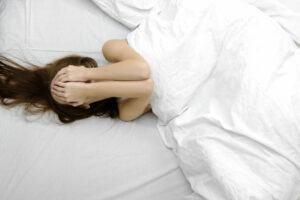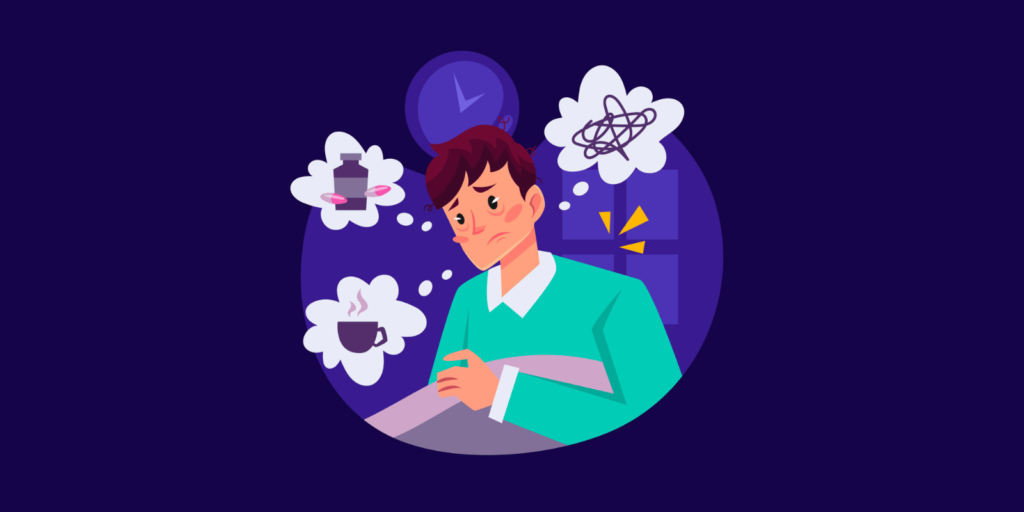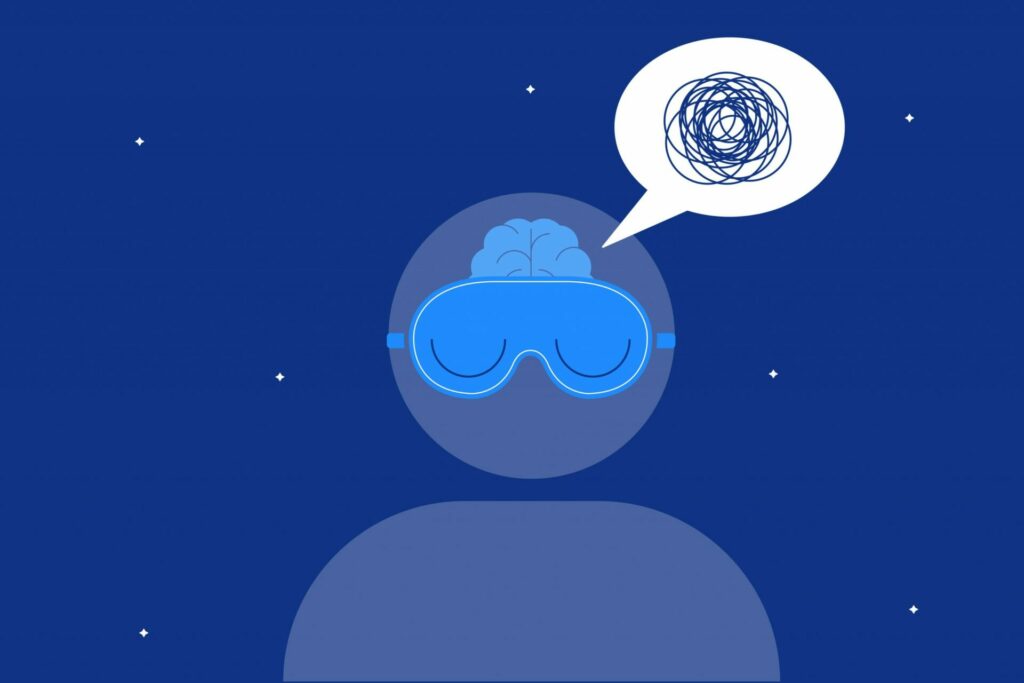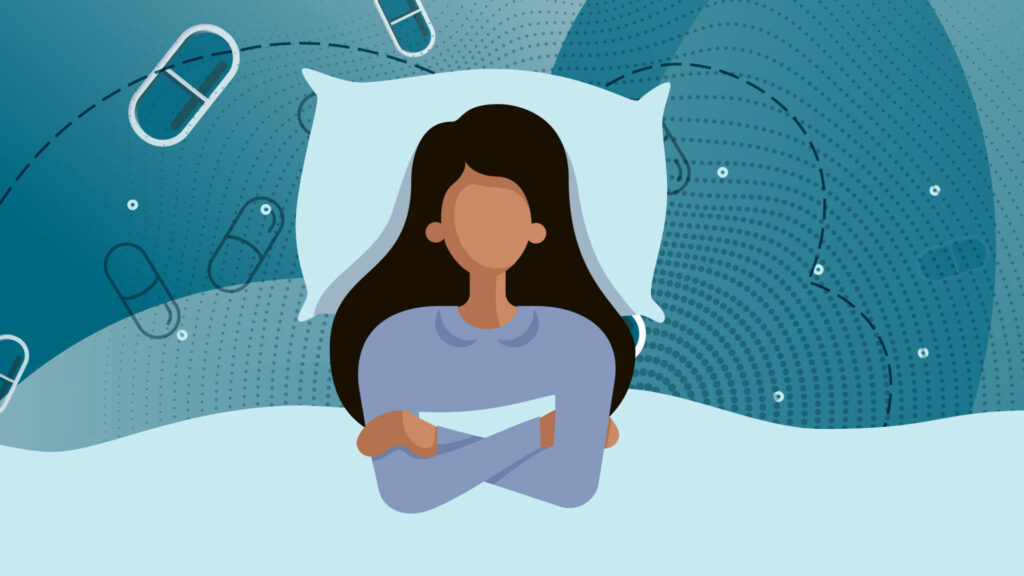Anxiety is a feeling of worry, fear, and apprehension. It can be mild or severe, but it’s always there, lurking in the background, ready to take over at any moment. And that’s why it’s so important to learn about anxiety, understand what causes it, and learn how to handle it. In this article, we’re going to provide you with a comprehensive guide on sleep anxiety – from the most common types of anxiety to remedies and treatments. So whether you’re new to anxiety or you’ve been dealing with it for years, make sure to check out this guide!
Contents
What is Sleep Anxiety?

Sleep anxiety is a type of anxiety that is caused by worry and fear about falling asleep or staying asleep. Sleep anxiety can negatively impact daytime activities and overall quality of life. It’s not uncommon to have trouble falling or staying asleep, but if you’re feeling anxious about it, there are some things you can do to help.
This type of Anxiety is anxiety caused by worry and fear about falling asleep or staying asleep. This anxiety can negatively impact daytime activities and overall quality of life. It’s not uncommon to have trouble falling or staying asleep, but if you’re feeling anxious about it, there are some things you can do to help.
Some simple things you can do include: practicing relaxation techniques before bed, avoiding caffeine and alcohol in the evening, and sticking to a regular sleep schedule. If you find that your anxiety is preventing you from getting a good night’s sleep, talk to your doctor or therapist about possible treatment options.
Symptoms of Sleep Anxiety

Sleep anxiety is a type of anxiety that people can experience when they are trying to get to sleep or stay asleep. There are many signs of sleep anxiety like:
Trouble Concentrating
One of the most common symptoms of sleep anxiety is trouble concentrating. Individuals with this condition often find it hard to stay focused on tasks or conversations when they are trying to fall asleep. This can make it difficult to get the rest that they need to function the next day.
Excessive Sweating
Another common symptom of this type of anxiety is excessive sweating. People with this condition often feel a strong sense of fear or anxiety when they are trying to fall asleep and will often begin to sweat due to the tension that is building up inside of them.
Rapid Heartbeat
A rapid heartbeat is also a common sign of this type of anxiety. Individuals with this condition often find that their heart rate increases significantly when they are trying to fall asleep or restorative sleep. This can be a sign that the individual is feeling stressed out and anxious about the situation.
Napping Is Rare or Not Possible
If individual struggles to get to sleep, they may find that they are unable to nap during the day. This is because napping is a natural way for people to relax and wind down after a busy day. If an individual cannot take a break from their daily tasks to rest, it can lead to problems with sleep anxiety later on.
Difficulty Concentrating
Another sign that an individual is struggling with this type of anxiety is difficulty concentrating. This can often lead to frustration and feelings of frustration when trying to complete tasks or take care of responsibilities.
Rising Temperatures
Individuals who are struggling with this type of anxiety may also experience a rise in their body temperature. This is because anxiety often leads to an increase in heart rate and blood pressure. This can make it difficult to fall asleep or stay asleep, especially if the individual is sensitive to heat or humidity.
Excessive Alcohol Consumption
It is also common for individuals who are struggling with sleep anxiety to drink excessively. This can lead to an increase in anxiety and stress levels, which can make it difficult to fall asleep or have restful sleep.
Nightmares
One of the most common symptoms of sleep anxiety is nightmares. People who have this condition often have recurring nightmares that can be extremely stressful and upsetting. Nightmares can seriously interfere with an individual’s ability to get a good night’s sleep.
Causes of Sleep Anxiety

There are many potential causes of sleep anxiety, but some of the most common include:
1. Poor sleep habits – People who have this type of anxiety often have trouble falling asleep or staying asleep, even if they get the recommended seven to eight hours of sleep each night. This can be due to a variety of factors, including stress, worry, and caffeine intake before bed. If you’re struggling with sleep anxiety, make sure to work on stabilizing your sleeping habits so that you’re getting the best possible quality of sleep.
2. Genetics – Some people are just more likely to experience sleep anxiety than others. It may be something that is passed down from parents or grandparents, or it may simply be a part of your natural personality. If your family history is associated with poor sleep quality, it’s worth considering trying some relaxation techniques and/or cognitive behavioral therapy (CBT) to help improve your sleep quality.
3. Medical conditions – Sleep problems can often be linked to certain medical conditions, such as depression or fibromyalgia. If you’re struggling with sleep anxiety and your symptoms don’t seem to be related to any particular medical condition, it may be worth seeing a doctor rule out any potential issues.
4. Anxiety disorders – People with anxiety disorders are often struggling with both sleep and mood problems, which can make it difficult to get a good night’s sleep. If you have an anxiety disorder, make sure to see your doctor about possible methods of treatment that could improve your sleep quality.
5. Stress – Chronic stress can hurt both your sleep and overall mental health, which can lead to increased levels of anxiety and sleep anxiety. If you’re struggling with stress and poor sleep quality, try some relaxation techniques such as yoga or meditation to help reduce your stress levels and improve your sleep quality.
6. Substance abuse – Abuse of drugs and alcohol can have a profound effect on sleep, leading to disrupted sleep patterns, anxiety, and even sleep anxiety. If you’re struggling with substance abuse and poor sleep quality, make sure to seek help from a professional detox or rehabilitation program.
How To Treat Sleep Anxiety?

There is no single answer to treating this type of anxiety, as the condition can be exacerbated by a variety of factors. Some of these treatment methods are:
Medications
One of the most common ways to treat sleep anxiety is by using medications. Some of the most commonly prescribed medications for this purpose are antidepressants, benzodiazepines, and beta blockers. These medications are often effective in reducing sleep anxiety symptoms, but they can also have side effects. It is important to discuss the benefits and risks of these medications with a doctor before starting them.
Behavioral Therapy
Behavioral therapies, such as cognitive behavior therapy (CBT), can help change the way people think about their anxiety. This may in turn lead to improvements in sleep quality and quantity. This behavior therapy is often successful in treating other forms of anxiety. So it is a good option for this anxiety as well.
Expressive Therapies
Expressive therapies, such as art therapy or music therapy, may offer individuals with this type of anxiety relief. This is by providing them with an outlet for their emotions. Some of the most common expressive therapies are also effective in treating other forms of anxiety. Also, counseling can provide individuals with the support they need to manage their anxiety. This type of therapy can help people understand their anxiety and how it affects their life. This may lead to improvements in sleep quality.
How To Manage Sleep Anxiety?
There are many types of anxiety, but some of the most common include general anxiety, panic disorder with or without agoraphobia, post-traumatic stress disorder (PTSD), obsessive-compulsive disorder (OCD), and social phobia. The specific type of anxiety you experience can depend on your individual history and circumstances. However, many of the same strategies work for other types of anxiety. These can help you manage this type of anxiety, including:
1. Exercising regularly. Exercise has been shown to improve both mental and physical health, which can help reduce anxiety in general. It also helps to release endorphins, which are hormones that have calming effects. In addition, exercise has been shown to improve sleep quality in people with generalized anxiety disorder.
2. Taking regular breaks throughout the day. When we’re stressed, our bodies begin to produce adrenaline and cortisol in response. These hormones make us feel anxious and tense, which can keep us from falling asleep. To avoid getting too anxious before bedtime, try taking a 10-15 minute break every hour or so. This is to do something calming (like reading or taking a walk).
3. Avoid caffeine and alcohol late in the day. Both caffeine and alcohol can disrupt sleep, leading to increased anxiety. Try to stick to non-stimulating beverages, like water or tea, in the late afternoon and evening.
4. Practicing relaxation techniques. Techniques like deep breathing, yoga, and meditation have been shown to improve both mental and physical health, including reducing anxiety. Try to practice these techniques before bedtime to help you relax and fall asleep quickly.
5. Seeking professional help. If this type of anxiety is keeping you from sleeping or causing significant distress, seeking professional help may be a good option. A therapist can help you understand your anxiety and develop strategies for managing it.


